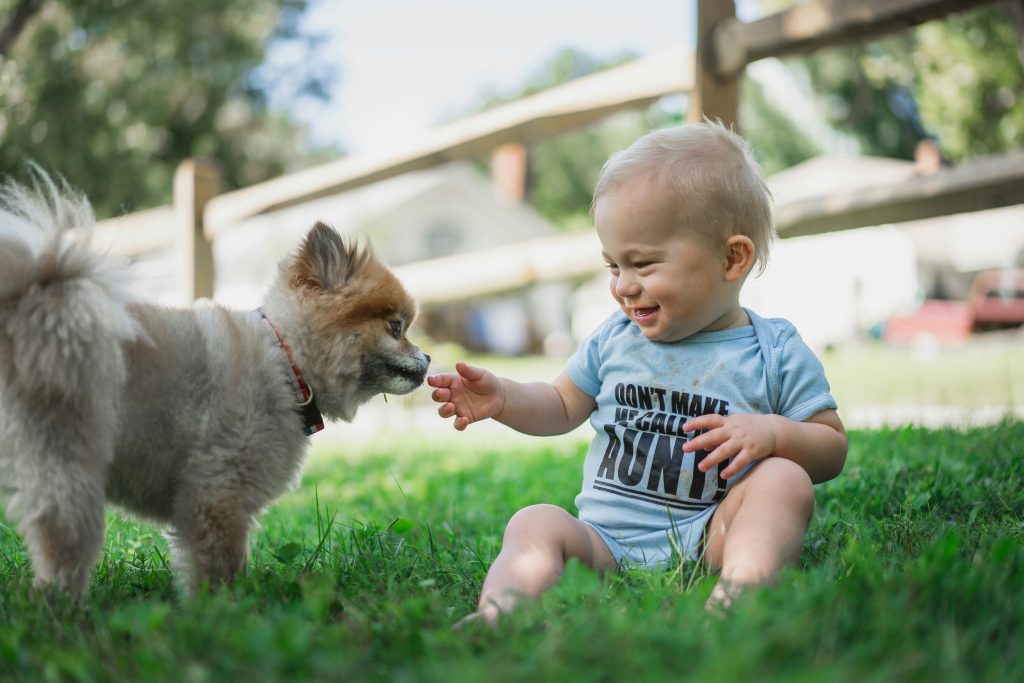The article discusses the numerous benefits that growing up with dogs can have on babies physical, emotional, and social development, including reduced risk of allergies and respiratory infections, enhanced empathy and emotional support, learning responsibility and empathy, promoting physical activity, and long-term positive effects on child development.

Overview of the Trend in Pet Ownership and Child Development
The number of families owning dogs has been steadily increasing, with more and more people recognizing the numerous benefits that pets, especially dogs, can bring to the development of children. Research has shown a growing interest in how pets, particularly dogs, can positively impact the physical and emotional well-being of children. Studies indicate that early exposure to dogs can have long-lasting effects on the health and behavior of children.
Growing up with dogs can provide children with companionship, emotional support, and valuable life lessons. The presence of a dog in the household can create a nurturing environment that enhances a child’s overall development. Dogs have been found to play a significant role in fostering empathy, responsibility, and physical activity in children, contributing to their growth and well-being [4].
Health Benefits of Growing Up with Dogs
One significant advantage of having dogs in the family is the potential health benefits they offer to babies and children. Research suggests that children who grow up with dogs have a reduced risk of developing respiratory allergies, asthma, and eczema. Furthermore, kids with dogs tend to experience lower rates of respiratory infections and ear infections compared to those without pets. The mere presence of a dog in the household has also been associated with a decreased likelihood of childhood obesity and related health issues, highlighting the positive impact that dogs can have on the physical health of children.
To illustrate, a study conducted by researchers from Hokkaido University in Japan found that exposure to dogs early in life was linked to a lower risk of respiratory allergies in children, showcasing the protective effects that canine companionship can have on the health of babies and young ones.
Emotional and Social Development Advantages
Growing up with dogs can significantly contribute to the emotional and social development of babies and children. Children who have canine companions often exhibit higher levels of empathy and compassion towards both animals and people. Dogs can serve as a source of comfort and emotional support, especially during challenging times, providing children with a sense of security and companionship. The bond between a child and a dog can also help enhance the child’s emotional regulation skills and ability to cope with stress.
For instance, a study from the National Kids and Pets Day highlighted that children who have dogs as pets tend to develop higher levels of emotional intelligence, compassion, and self-esteem, emphasizing the positive impact that dogs can have on the emotional well-being of babies and young children.

Learning Responsibility and Empathy
Caring for a dog teaches children important values such as responsibility, empathy, and compassion. It instills in them the significance of routine, consistency, and meeting the needs of others. Children who have pets at a young age are more likely to develop a sense of empathy and understanding towards living creatures. Involving children in pet care tasks, such as feeding and grooming the dog, can foster a sense of achievement and build their confidence.
For example, a child who takes on the responsibility of walking the family dog every day learns the importance of commitment and caring for another living being, which can have long-lasting effects on their character development and sense of empathy.

Promoting Physical Activity and Battling Obesity
Dogs play a vital role in promoting physical activity and combating obesity in children. Their need for regular exercise encourages kids to engage in outdoor play and activities, leading to increased physical movement and exercise. Playing with a dog can help improve a child’s coordination, balance, and motor skills, contributing to their overall physical development. Children who grow up with dogs are more likely to meet the recommended daily activity levels, which is essential for their health and well-being.
For instance, a study by The Drake Center emphasized that children with dogs in the home tend to be more active due to engaging in playtime and walks with their furry companions, which can have a positive impact on maintaining a healthy weight and lifestyle.
Selecting the Right Dog for Your Family
Choosing the appropriate dog for your family involves considering factors such as size, energy level, temperament, and compatibility with children. Researching different dog breeds and seeking advice from a veterinarian or animal behaviorist can help families make informed decisions when selecting a pet. Proper training and socialization of the dog are crucial to ensuring a safe and harmonious relationship with children in the household.
For example, families with young children may opt for dog breeds known for their gentle and patient nature, such as Golden Retrievers or Labrador Retrievers, to provide a safe and nurturing environment for both the child and the pet.

Summary and Long-Term Benefits of Canine Companionship
Growing up with dogs not only enhances the immediate well-being of children but also lays the foundation for lifelong values of compassion, responsibility, and healthy habits. The positive influence of dogs on child development extends beyond physical health, encompassing emotional resilience, social skills, and overall happiness. Investing in a family dog can be a rewarding experience that enriches the lives of both children and adults, fostering a lasting bond built on love, trust, and mutual support.
